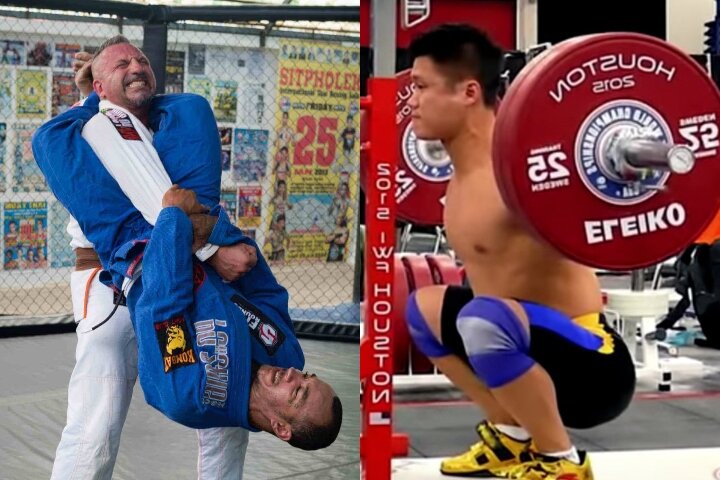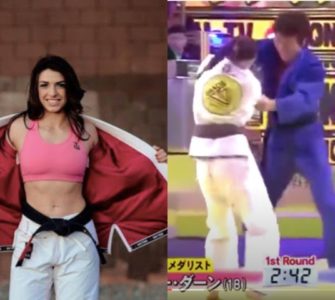Chad Wesley Smith, a former world champion powerlifter and now BJJ competitor, is a prominent figure in strength training for Jiu-Jitsu. Smith explores the intricate details of strength development tailored for Brazilian Jiu-Jitsu in a recent episode on the Mayn Idea Podcast. Smith identifies four critical types of strength that every practitioner should focus on: maximal, explosive, isometric, and strength endurance.
Maximal Strength: The Foundation
Maximal strength is about the ability to exert the maximum force possible, irrespective of the time it takes. This type of strength is commonly seen in powerlifters who engage in lifts such as squats, bench presses, and deadlifts. These exercises are slow and challenging but are crucial for building the foundation of strength that supports all other types.
Explosive Strength: Speed and Power
Explosive strength is essential for dynamic actions in sports, where rapid movement and force application are critical. In BJJ, explosive strength allows a practitioner to perform techniques swiftly and powerfully, giving them a tactical advantage over their opponent by reaching critical positions faster.
Isometric Strength: The Static Hold
Isometric strength involves maintaining a static position under tension. In the context of BJJ, this type of strength is crucial during grappling holds and submissions, where maintaining a grip or a lock without moving is often the difference between controlling an opponent or not. It requires the muscles to sustain force without actual movement, mirroring real-life BJJ scenarios like holding a guillotine or a head-and-arm choke.
Strength Endurance: Sustained Performance
Finally, strength endurance is the ability to perform strength movements repeatedly without significant decline in force output. For BJJ practitioners, this means being able to execute techniques effectively even late into matches, maintaining high performance throughout prolonged training sessions or competitions.
Smith’s insights provide a comprehensive framework for BJJ athletes to tailor their strength training to enhance performance on the mat. Integrating these strength types into training routines can lead to significant improvements in technique execution, endurance, and overall competitive edge in Brazilian Jiu-Jitsu.


















